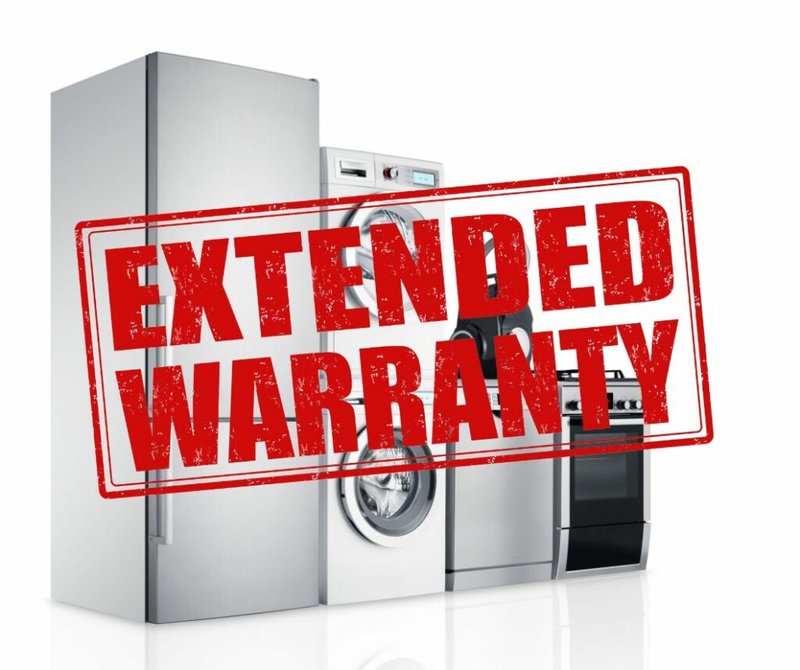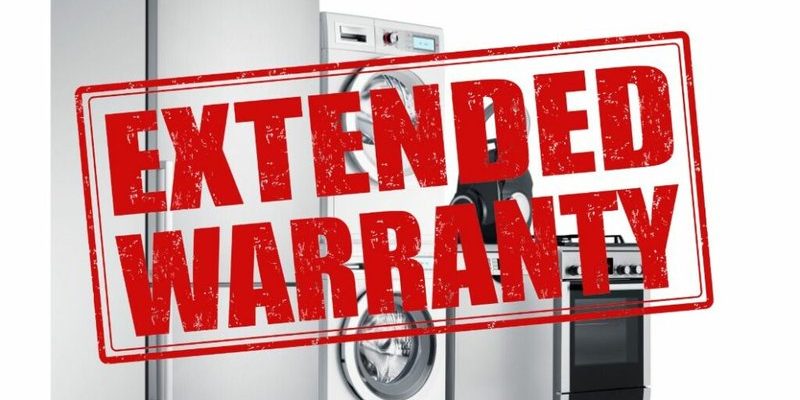
Buying any major appliance is a bit like adopting a pet—it’s going to be with you for years, and how well it behaves (or misbehaves!) can make or break your home routine. LG laundry appliances, with their intuitive digital panels, remote controls, and complex cycles, feel high-end. So it’s natural to wonder if an extended warranty might save you from future headaches—whether it’s a mysterious code on the display, a reset that won’t work, or a remote battery that just won’t sync. Let’s walk through what extended warranties actually cover, where they’re helpful (and where they’re not), and whether your money’s better spent elsewhere.
What Does an LG Extended Warranty Actually Cover?
Here’s the thing about extended warranties: not all of them are created equal, and the fine print matters—a lot. An LG extended warranty, whether you get it straight from LG or through the retailer, basically promises to fix or replace certain problems with your washer or dryer after the original manufacturer warranty expires. That standard warranty usually covers one year of parts and labor, with a few things (like the motor or drum) covered for up to 10 years. The extended warranty is like tacking on extra years once those main protections run out.
Most extended warranties for LG laundry appliances cover:
- Mechanical breakdowns—like if your washer suddenly stops spinning or your dryer starts making that dreaded grinding noise.
- Electrical failures—if the control panel dies, won’t pair with your remote, or display codes you can’t reset.
- Parts and labor—so you’re not hit with a surprise bill for troubleshooting or repair visits.
But there are always exceptions. Cosmetic damage? Probably not covered. Problems caused by power surges, using the wrong detergent, or forgetting to clean the lint trap? Usually not covered either. That’s why it’s smart to read the warranty terms closely—no one wants to find out too late that their “protection” doesn’t actually protect what broke.
Common Problems With LG Laundry Appliances
You might be wondering, “What could actually go wrong with my LG washer or dryer?” Honestly, while LG has a pretty solid reputation for reliability, no appliance is bulletproof—especially as features get fancier. Over the years, here are some of the most common real-world issues people run into:
- Error codes—If you’ve ever seen a strange code pop up (like DE, OE, or UE), you know how frustrating it can be. Sometimes it’s a simple fix, like checking the door latch or balancing a load. Other times, it involves full-on troubleshooting or even a new part.
- Electronic panel glitches—Touchscreens and digital controls can stop responding or get buggy. Occasionally, a reset or firmware update helps. Other times, you might need a replacement module, which isn’t cheap.
- Drum or motor issues—This is rare, but if your washer shakes violently, refuses to spin, or makes weird noises, it could be the motor or bearings. LG motors are usually covered for a long time, but labor and diagnostics aren’t.
- Remote control or smart sync failures—LG’s WiFi-enabled models let you control cycles via phone or remote. If that system won’t sync or loses connection, you might need a service call, especially if code troubleshooting doesn’t work.
The real question is how often these things happen—and whether fixing them out-of-pocket would cost more than the warranty itself. If your machine’s blessedly boring for years, the extra coverage might feel like wasted money.
How Much Does an Extended Warranty Cost?
Let me explain—warranties come in all shapes and prices. Some retailers offer their own versions (think Best Buy, Home Depot), while LG sells its own “Premium Care” plans. On average, you can expect to pay anywhere from $100–$300 for two to four years of coverage, depending on the appliance’s price and model.
Here’s a quick way to think about it:
| Appliance | Typical Warranty Cost | Standard Repair Cost (Without Warranty) |
| LG Washer | $120–$250 (3–5 years extra) | $200–$500 (average major repair) |
| LG Dryer | $100–$200 (3–5 years extra) | $150–$400 (average major repair) |
It doesn’t sound too bad, right? But, you need to remember: warranties are a bet. The company is betting you won’t need expensive repairs. You’re betting you might. Sometimes, the house wins, and your machine works perfectly for seven years with no issues. Other times, a single fried motherboard can pay for the warranty (and then some).
When Is an LG Extended Warranty Worth It?
Honestly, there are certain situations where extended warranties start to make more sense. Let’s say you’re someone who hates unexpected expenses or you just moved to a new place where every dollar counts. If the idea of paying $500 out of the blue for a repair makes you break out in hives, the peace of mind might be worth the price.
Extended warranties can be especially worthwhile if:
- Your model has lots of electronics—The more digital bells and whistles, the more things that can go wrong (think smart sync, remote reset, battery power for WiFi modules, etc.).
- You do tons of laundry—Families or shared homes put more wear and tear on appliances, speeding up issues like drum or sensor problems.
- You have bad luck with tech—Some folks just seem to attract wonky wiring or buttons that stop working. If that’s you, protection can feel smart.
- You plan to keep the appliance for years—The longer you own it, the more likely something will eventually need code troubleshooting or a part replaced.
But honestly, if you’re pretty handy, don’t mind a bit of basic troubleshooting, or your laundry needs are pretty chill, you might be just fine skipping it.
The Drawbacks and Gotchas of Extended Warranties
Here’s the catch with these plans: not everything is as simple as it sounds. Some people assume an extended warranty means “anything goes wrong, it’s covered!”—but that’s rarely true.
- Many issues aren’t covered—Things like accidental damage, power surges, or problems caused by “improper use” are often excluded. If you ignore basic maintenance (like not cleaning the filter, or overloading the washer), even a code failure or reset issue might be denied.
- Service isn’t always speedy—You might be stuck waiting days, or even weeks, for a tech to come out and fix your laundry appliance, especially if parts need to be ordered.
- Approval hoops—Some plans require lots of documentation or basic “troubleshooting steps” (resetting, checking battery, etc.) before they’ll send anyone out. If you’re not patient, that process can feel endless.
- Cost vs. risk—If you go years without an issue, you’ve basically paid for insurance you never used. It stings, but that’s the trade-off.
Sometimes, paying for protection just feels good—even if you never use it. But if you’re the type who rolls with life’s surprises, you might be happier skipping the extra cost.
Alternatives to an Extended Warranty
You might be wondering—are there ways to protect yourself without an extended warranty? Definitely. For many people, these alternatives actually work better and give you more control.
- Self-insuring—Instead of buying coverage, set aside a small emergency fund—maybe $10 a month—for appliance repairs. If you never need it, you’ve built up a tidy little savings pile. If you do, it’s there.
- Using a credit card with purchase protection—Some cards automatically give you an extra year or so of coverage beyond the manufacturer’s warranty on big purchases, sometimes covering repairs, sync issues, or replacements.
- Relying on manufacturer support—LG gives you a decent standard warranty already, and some high-end parts (like motors) are covered for a decade. Plus, plenty of troubleshooting tips and code resets are available on LG’s support website or through smart apps, free of charge.
- Calling in a local repair pro—If something goes wrong and you’re out of warranty, sometimes a local appliance technician can fix things for less than the cost of a multi-year protection plan.
If you like a more DIY approach (and don’t mind tackling a weird code or learning how to reset your LG remote), these options give you freedom without the upfront commitment.
Manufacturer vs Third-Party Extended Warranties
Let’s talk about where you actually buy these extended warranties. There are usually two main flavors: those straight from LG (like LG Premium Care) and those from the store or a third-party provider. Both have pros and cons.
- Manufacturer warranties—Tend to be more reliable about using genuine LG parts and sending out brand-authorized technicians. If you’re picky about who works on your high-tech appliance or want seamless code updates, this is the safer bet.
- Third-party or retailer warranties—Can sometimes be cheaper, and might offer perks like accidental damage coverage. But, you’re often dealing with a middleman, which can mean delays, generic replacement parts, and more paperwork.
If you go the extended warranty route, read the service fine print closely. Make sure it covers the repairs that matter—from tricky electrical resets to smart module sync failures—so you don’t feel left out in the cold if something does break.
Final Thoughts: Should You Buy That Extended Warranty?
So, is an extended warranty worth it for LG laundry appliances? Like most things in life, it depends. If you sleep better knowing you’re protected against rare but expensive repairs, or you’re investing in one of LG’s ultra-smart washers with every code and sync feature imaginable, an extended warranty can buy peace of mind—especially during those unpredictable post-warranty years.
But if you’re comfortable with a little troubleshooting, trust your luck, or like the idea of saving your own “repair fund,” skipping the extra coverage might be the smarter move. LG appliances are generally reliable, and many repair calls end up being simpler (and cheaper) than the cost of multi-year protection.
Whichever way you lean, take a few minutes to read the warranty’s fine print, think through your risk tolerance, and do what feels right for your home and budget. In the end, whether you go with an extended warranty or not, you’ll have a plan ready for whatever your laundry routine throws your way.
